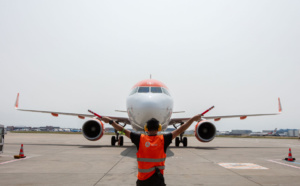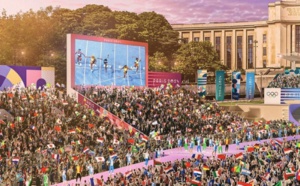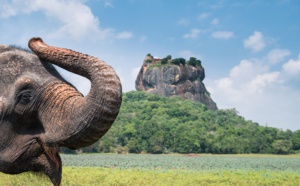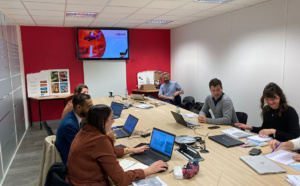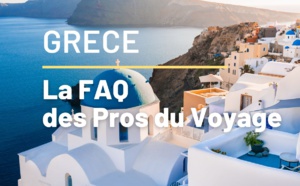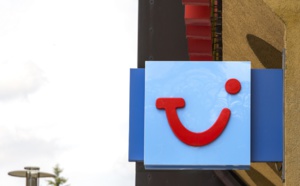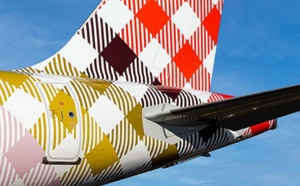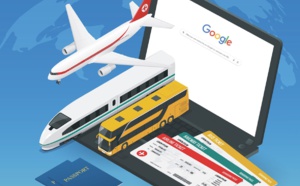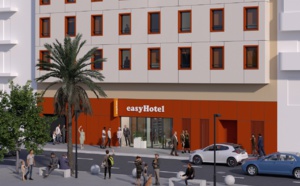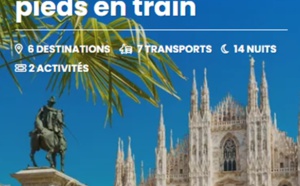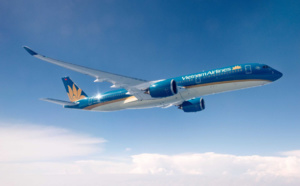
Richard Robinson, EMEA Director of Turn
The travel and tourism industry was one of the first of its kind to adopt Internet and new technologies, which completely changed our way of looking at travel.
Travel agencies have understood the interest of digitalizing and fully exploiting all the opportunities that the web has to offer.
New uses of search engines, programmatic advertising, campaigns on social networks, mobile applications…today again, the travel industry keeps on innovating to respond to the expectations of consumers and to stay in the game.
Here is the example of an industry that was able to turn upside down its modus operandi and foster its development.
Travel agencies have understood the interest of digitalizing and fully exploiting all the opportunities that the web has to offer.
New uses of search engines, programmatic advertising, campaigns on social networks, mobile applications…today again, the travel industry keeps on innovating to respond to the expectations of consumers and to stay in the game.
Here is the example of an industry that was able to turn upside down its modus operandi and foster its development.
Travel agencies have taken over the web
Physical travel agencies have digitalized.
They left the street in favor of online stores as is the case with Havas Voyage or Thomas Cook, and we witnessed the emergence of new, very powerful specialized online players such as Booking, Expedia, Lastminute, Jet tours…
The online purchasing behaviors have naturally been adopted by the consumer.
The still-standing physical stores had to adapt and improve their service quality, rethink their establishments and rates in order to remain attractive.
They respond to clients whose motivations have changed: those who take the time to visit physical stores do so to prepare their trip and gather advices on the destination and the activities possible, but no longer to buy their tickets.
These physical agencies, like Thomas Cook, now fit a generation that is still not very internet savvy and who finds reassurance in human contact.
They left the street in favor of online stores as is the case with Havas Voyage or Thomas Cook, and we witnessed the emergence of new, very powerful specialized online players such as Booking, Expedia, Lastminute, Jet tours…
The online purchasing behaviors have naturally been adopted by the consumer.
The still-standing physical stores had to adapt and improve their service quality, rethink their establishments and rates in order to remain attractive.
They respond to clients whose motivations have changed: those who take the time to visit physical stores do so to prepare their trip and gather advices on the destination and the activities possible, but no longer to buy their tickets.
These physical agencies, like Thomas Cook, now fit a generation that is still not very internet savvy and who finds reassurance in human contact.
When Facebook gives travel ideas
Internet completely changed travelers’ behaviors.
Expedia makes note that, on the day of their reservation, travelers visit around 16 websites in total, including close to five travel websites.
Social networks also influence the behavior of travelers. 58% of Facebook’s users declare that photos of destinations posted on the website encourage them to visit a place that they had never considered before.
Sharing information along with useful, relevant, and entertaining content can be an excellent way for tourism players to create a solid interaction with their clients beyond the simple transaction.
Likewise, mobile devices are taking an important part in the traveler’s daily life. The number of reservations done via this mode keeps on increasing.
Once on location, travelers pursue their searches via their smartphones. Indeed, once they have arrived to their destination, 65% of travelers look for retailers or restaurants in an 8km range of their surroundings, directly from their mobile phone.
Expedia makes note that, on the day of their reservation, travelers visit around 16 websites in total, including close to five travel websites.
Social networks also influence the behavior of travelers. 58% of Facebook’s users declare that photos of destinations posted on the website encourage them to visit a place that they had never considered before.
Sharing information along with useful, relevant, and entertaining content can be an excellent way for tourism players to create a solid interaction with their clients beyond the simple transaction.
Likewise, mobile devices are taking an important part in the traveler’s daily life. The number of reservations done via this mode keeps on increasing.
Once on location, travelers pursue their searches via their smartphones. Indeed, once they have arrived to their destination, 65% of travelers look for retailers or restaurants in an 8km range of their surroundings, directly from their mobile phone.
A multitude of new services for the consumer
Advertisers look to adapt to these new uses and develop tools always more elaborate to be able to anticipate their needs.
Search engines are flourishing to aid travelers in their choice of destination and for all types of reservations, such as Kayak, to reserve hotels and rental cars.
They work thanks to powerful algorithms capable of comparing a plethora of offers and best inform the client based on his search criteria.
Many startups (Airbnb, BlaBlaCar, Tripadvisor…) are developing in this field of travel associated to new technologies and data analysis.
They are looking to meet clients’ expectations, facilitate formalities, and develop the quality of service and relationship.
Furthermore, they are pioneers of the sharing economy, a new trend that favors sharing, exchange, and allows to optimize resources.
Search engines are flourishing to aid travelers in their choice of destination and for all types of reservations, such as Kayak, to reserve hotels and rental cars.
They work thanks to powerful algorithms capable of comparing a plethora of offers and best inform the client based on his search criteria.
Many startups (Airbnb, BlaBlaCar, Tripadvisor…) are developing in this field of travel associated to new technologies and data analysis.
They are looking to meet clients’ expectations, facilitate formalities, and develop the quality of service and relationship.
Furthermore, they are pioneers of the sharing economy, a new trend that favors sharing, exchange, and allows to optimize resources.
Programmatic advertising, the new El Dorado of the tourism sector
The travel industry has always been a competitive market in terms of advertising. There are many players who invest in all types of media.
In a market overloaded with advertising, brands had to turn to these new tools.
In the last few years, they started to exploit data collected through their websites, which allowed them to approach the traveler in a more targeted manner and to tackle programmatic advertising.
This technology enables brands to target their audience, communicate with it around several features, and to create a more customized bond with the client.
For example, within a few minutes after searching for fights to Barcelona, the client will see ads appear for an attractive offer on a flight plus hotel in this same city.
The travel sector has seized the opportunity and, today, is it the most powerful in terms of programmatic advertising.
According to the TAII5, investment coming from the tourism sector in programmatic advertising has doubled during the holiday seasons of the year 2014.
In an ultra-competitive market environment, it is vital of reinforce one’s online visibility in a customized manner in order to touch the consumer and make her dream.
In a market overloaded with advertising, brands had to turn to these new tools.
In the last few years, they started to exploit data collected through their websites, which allowed them to approach the traveler in a more targeted manner and to tackle programmatic advertising.
This technology enables brands to target their audience, communicate with it around several features, and to create a more customized bond with the client.
For example, within a few minutes after searching for fights to Barcelona, the client will see ads appear for an attractive offer on a flight plus hotel in this same city.
The travel sector has seized the opportunity and, today, is it the most powerful in terms of programmatic advertising.
According to the TAII5, investment coming from the tourism sector in programmatic advertising has doubled during the holiday seasons of the year 2014.
In an ultra-competitive market environment, it is vital of reinforce one’s online visibility in a customized manner in order to touch the consumer and make her dream.







